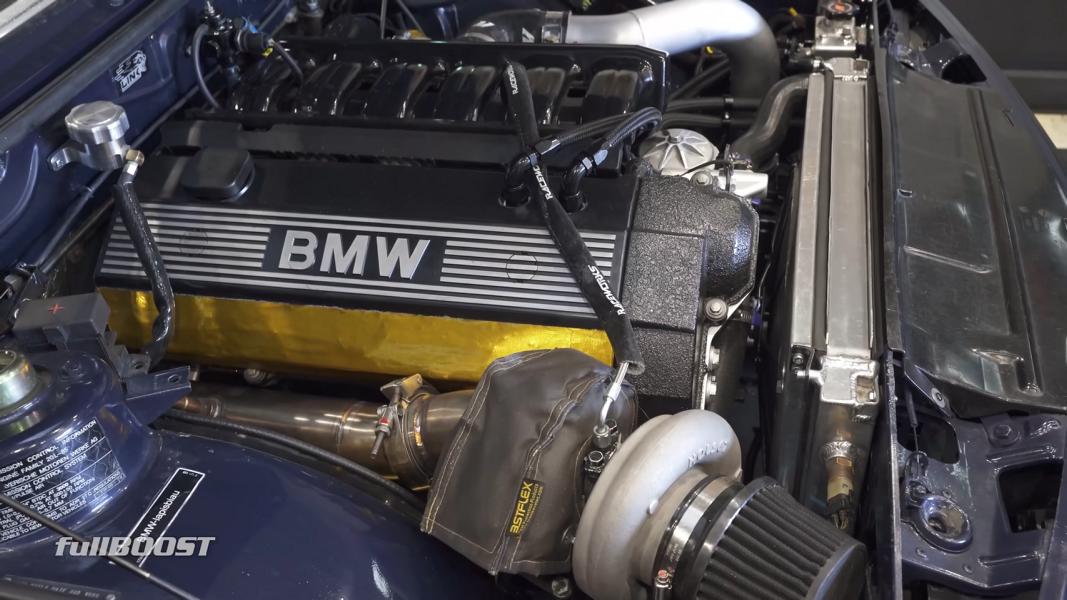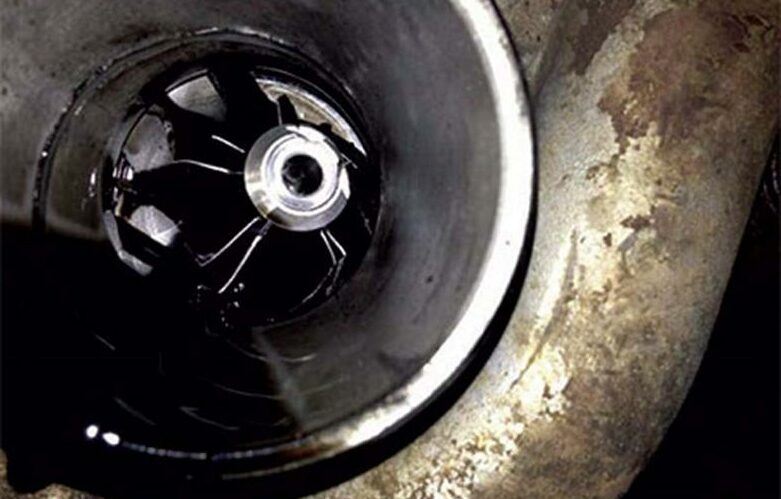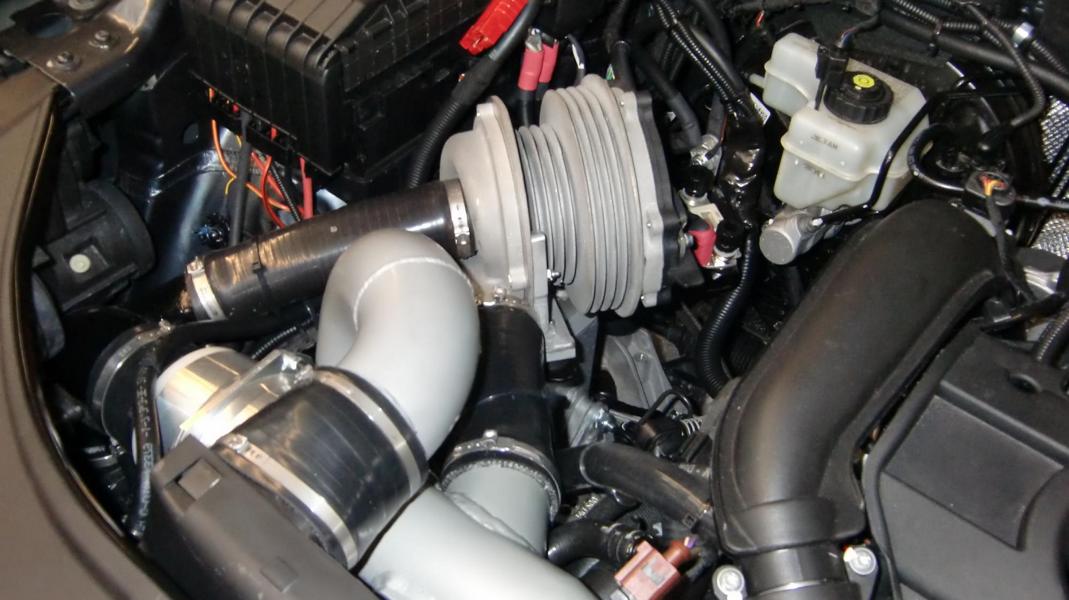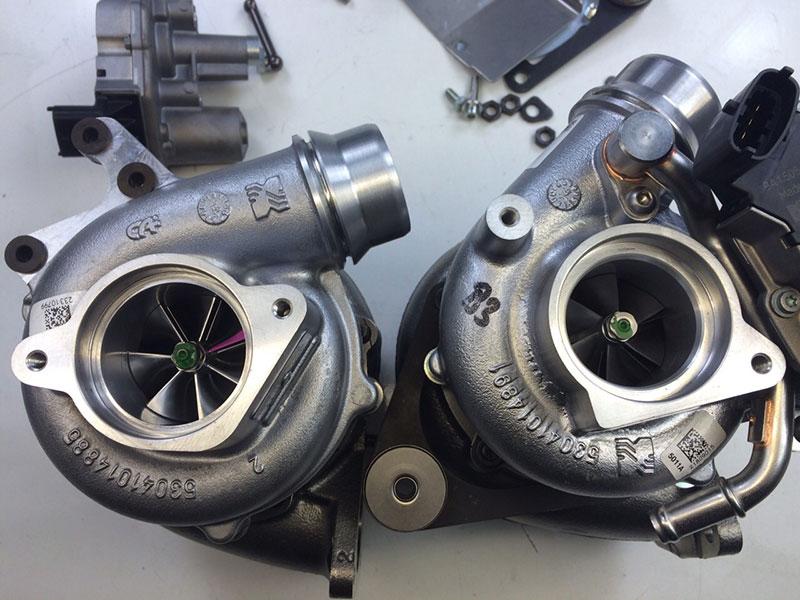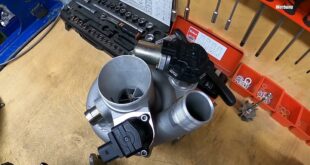Turbocharger defect: Symptoms, consequences and maintenance! A pair of turbocharger is a central element of many modern engines, especially diesel vehicles. The increase in efficiency and Performance increase are key advantages of the technology. But what happens if the loader malfunction is? Turbocharger function: The turbocharger increases engine performance by pumping more air into the combustion chamber. This is done by a compressor that is driven by exhaust gases. Symptoms of a defective turbocharger: A whistling noise can indicate a Leak or indicate a stuck bypass valve. Other signs are decreasing engine performance, high oil consumption, oil on compressor or turbine as well smoke development from the exhaust.
Is the turbocharger broken?
Are particularly noticeable light or bluish colored smoke , and a jerky acceleration behavior. Boost pressure control and VTG charger: Boost pressure control is essential in order not to exceed the mechanical load limit of the turbo and engine. VTG loader (Variable turbine geometry) adjust the flow angle of the turbine blades to efficiently regulate the boost pressure. Biturbo systems: A biturbo or twin turbo system uses two turbochargers for greater power and efficiency. Especially at high speeds The system delivers advantages by minimizing the so-called “turbo lag”.
Causes of a turbocharger defect!
The causes often lie in external factors such as Scoring in the plain bearings, Foreign bodies in the intake or exhaust manifold, interrupted oil supply, too low oil pressure or Soot accumulations. Consequential damage from a defective turbo: If problems are not identified early, serious engine damage can occur. Parts of the turbocharger can break off and enter the combustion chamber, which may require a complete engine replacement. Testing and repair: If a defect is suspected, one should Examination done in a workshop.
An self repair is not recommended due to the complexity of the turbocharger and its integral role in the engine. Preventive measures: Regular maintenance, such as replacing engine oil and oil filters, helps prevent many causes of loader damage. In addition, the vehicle and engine should idle for a while before switching off to cool down the turbo. And finally ... A defective turbo can have a severe impact on the performance and durability of the engine. Regular maintenance and observation of the above symptoms are crucial to avoid expensive repairs and damage.
Symptoms of a defective turbocharger:
-
- Whistling noises
- High oil consumption
- Traces of oil on the compressor or turbine
- End of decline Power, hesitant acceleration
- Smoke development, especially light or bluish
- Rapid increase in boost pressure when engine performance decreases
- Consequential damage if a defect is not repaired:
- potential engine failure
- Components of the turbocharger can get into the combustion chamber
- Perhaps complete replacement of engine and turbo necessary
- Causes of charger damage:
- Grooves in the plain bearings
- foreign body in intake/exhaust manifold
- Interrupted oil supply
- Oil pressure too low
- Soot accumulations
- Specific cause explanations:
- Grooves in plain bearings dirty engine oil
- Damage foreign objects Turbocharger turbines
- Lack of oil leads to overheating of the turbocharger bearings
- Low oil pressure causes camp burning
- Soot blocks turbocharger movement
- Prevention and maintenance:
- Regular exchange of engine oil and oil filter
- Maintenance of the air filter
- Do not rev the engine immediately after starting
- Cooling down of the turbocharger before switching off the engine
- Important technical details:
- Turbocharger increases that Power through increased air supply
- How it works: Compressor is running Exhaust gases driven
- VTG loader regulates boost pressure, with variable turbine geometry
- Biturbo systems improve response and efficiency
- Sequential charging in biturbos optimizes performance across the entire speed range
- Instructions for the workshop inspection:
- Check on Leaks and mechanical damage
- Boost pressure measurement to determine Performance deviations
- Inspection of the Vacuum unit and checking the boost pressure control
- Diagnostic device for Troubleshooting and precise root cause analysis
- General recommendations:
- Examination by a specialist if charger damage is suspected
- avoidance of Do-it-yourself repairs due to high complexity
- Attention to the Inspection dates for early detection of problems
FAQ: Turbochargers – defects, repairs and maintenance
What happens when you drive with a broken turbocharger?
- Engine problems: Driving with a defective turbocharger is possible serious engine damage cause.
- Insufficient air supply: The engine does not receive enough air for efficient combustion.
- Possible damage: damage Pistons, valves and other engine components.
Signs of a defective turbo
- smoke development: Blue smoke indicates burned engine oil.
- Whistling noises: Indicate an over-revving turbocharger or a defective hose.
- VTG adjustment defective: Leads to strong power loss and engine control.
Turbo repair costs
- Repair costs: between €100 and €750.
- Use of original spare parts to ensure the longevity of the turbo.
Price of a new turbocharger
- Average cost: etwa 750 EUR.
- Price range: from under 100 EUR to 6.000 EUR.
- Used turbochargers: Prices vary and can cost up to 2.000 EUR.
Costs of turbo damage
- Repair in the authorized workshop: Net costs between 1.000 and 2.500 euros.
- Assembly of new parts only.
Causes of oil leakage from the turbocharger
- Clogged or defective return line.
- Oil level too high.
- High internal crankcase pressure due to wear on pistons and piston rings.
Is oil in turbocharger normal?
- Misconception: Oil leakage does not automatically mean a defective turbocharger.
- Misdiagnosis: Often leads to the unnecessary replacement of functioning turbochargers.
When should the turbo be changed?
- Signs of defect:
- Black smoke from the exhaust.
- Whistling or grinding noises.
- Knocking noises from the engine.
- Noticeable loss of performance.
Can a turbocharger be repaired?
- Focus on replacing components: Defects and wear parts will be replaced, including cleaning.
- Replacing oil, seals, filters.
Duration of a turbo change:
- Time spent: Depending on the vehicle and accessibility of the turbo.
- Average duration: etwa three to six hours.
Other frequently asked questions:
- Is it safe to continue driving with a broken turbocharger?
- No, it's not safe. Continuing to drive could result in serious engine damage.
- Can a turbocharger suddenly fail?
- Yes, a turbocharger can suddenly fail, which is usually the case Loss of power and unusual noises makes noticeable.
- How do you prevent turbocharger damage?
- Regular Maintenance, using high quality oil and filters and avoiding extreme speeds.
- Can turbochargers be cleaned?
- Professional cleaning can help in some cases, but replacement is necessary if the damage is severe.
- If a turbo is damaged, do both turbos always have to be changed on biturbo systems?
- It is recommended to change both turbos at the same time on biturbo systems to avoid performance imbalances.
Final note:
If turbocharger damage is suspected, it is important to act quickly to prevent further damage. Professional diagnosis and repairs in a specialist workshop are essential to ensure the full function and safety of the vehicle.
thematically relevant posts
In our category Tips, products, information & Co We have reviews of car or accessories manufacturers, new ones Tuning Wiki Terms or one or two leaks published.
|
Squeaking noises when driving a car - that could be the reason! |
 tuningblog.eu Your magazine about tuning the car
tuningblog.eu Your magazine about tuning the car
